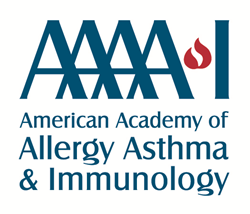
Essentially what we saw was that the original PARS scoring was similar to scoring in the new, more diverse cohorts. This validates our previous results and could lead to PARS ultimately becoming a new quantitative gold standard in pediatric asthma risk prediction.
MILWAUKEE (PRWEB)
February 20, 2023
Researchers have confirmed the effectiveness of the Pediatric Asthma Risk Score (PARS) after validating its use with diverse cohorts from across the United States. The results are being presented in full during the 2023 Annual Meeting of the American Academy of Allergy, Asthma & Immunology (AAAAI).
“If we hope to initiate early prevention strategies, it is essential that we predict asthma as early as possible,” said Jocelyn M. Biagini, PhD, primary author of the study. “PARS is a continuous score that was developed to predict early-life asthma. We wanted to validate the results in cohorts that were more diverse than in original studies.”
PARS was compared to the Asthma Predictive Index (API) in ten cohorts, which included 5,674 children. These cohorts were diverse in terms of race, ethnicity, sex, cohort type, missing data and birth decades. Researchers performed meta-analysis across all ten of the cohorts. PARS and API were applied in each cohort, and researchers compared the ability of both tools to predict asthma’s development between the ages of five and ten.
Researchers found the PARS area under the curve (AUC) was higher than the AUC of the API across nine cohorts out of the ten. The PARS AUC didn’t change based on the cohort type. “Essentially what we saw was that the original PARS scoring was similar to scoring in the new, more diverse cohorts,” said Dr. Biagini. “This validates our previous results and could lead to PARS ultimately becoming a new quantitative gold standard in pediatric asthma risk prediction.”
Visit aaaai.org to learn more about asthma. Research presented at the AAAAI Annual Meeting, February 24-27 in San Antonio, Texas, is published in an online supplement to The Journal of Allergy and Clinical Immunology.
The American Academy of Allergy, Asthma & Immunology (AAAAI) is the leading membership organization of more than 7,100 allergists, asthma specialists, clinical immunologists, allied health professionals and others with a special interest in the research and treatment of allergic and immunologic diseases. The AAAAI is the go-to resource for patients living with allergies, asthma and immune deficiency disorders. Established in 1943, the AAAAI has more than 7,100 members in the United States, Canada and 72 other countries. The AAAAI’s Find an Allergist/Immunologist service is a trusted resource to help you find a specialist close to home.
Share article on social media or email:

